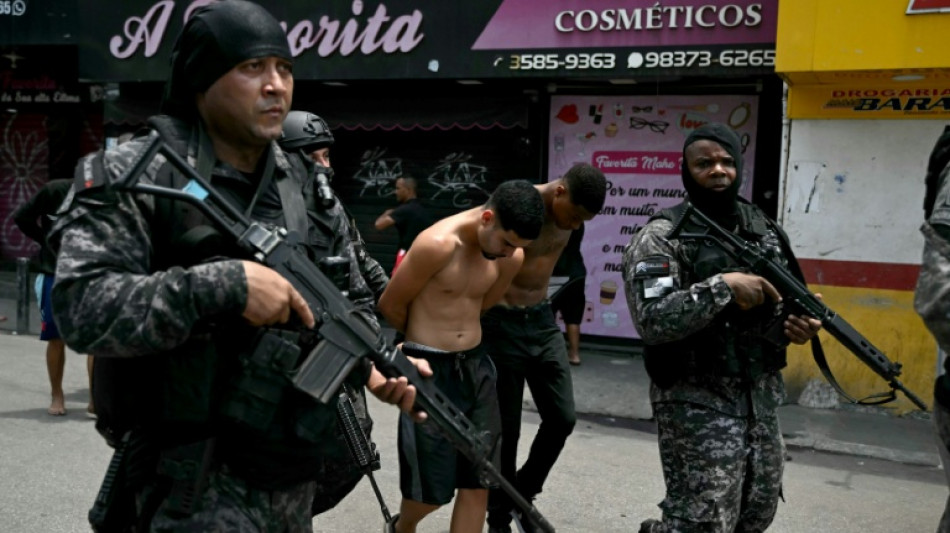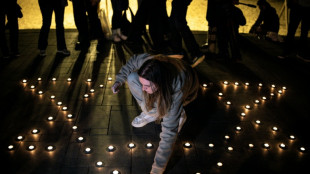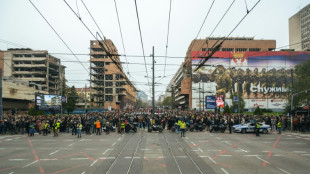
At least 64 killed in Rio drug raid

Hundreds of heavily armed Brazilian police raided slum areas of Rio in a drug raid Tuesday, touching off firefights likened to scenes from a war and leaving at least 64 people dead, Brazilian officials said.
As many as 2,500 officers as well as armored vehicles and helicopters took part in the raid that targeted one of Brazil's main drug-trafficking gangs in two poor neighborhoods called favelas.
War-like scenes unfolded during the operation, which was still going on as of Tuesday afternoon. Images circulating on social media showed columns of smoke rising into the sky as bursts of gunfire rang out.
Rio State Governor Claudio Castro described the operation as the largest in the state's history.
The central government said the raid aimed to stop a gang called Comando Vermelho from expanding.
The death toll stands at 64, including four police officers, a source in the security services said. The source did not say if the other fatalities were all criminal suspects.
Raids in the favelas are common but this was the deadliest one yet. Until now the highest death toll came in a raid in 2021 that left 28 people dead.
Police also seized at least 42 rifles Tuesday along with a large quantity of drugs, Castro said. At least 81 people were arrested.
The raid focused on two clusters of favelas in northern Rio, the Complexo da Penha and Complexo do Alemao, located near the international airport.
An AFP photographer saw heavily armed police officers taking away detained men, most of them barefoot and shirtless.
- Favelas ruled by gangs -
The police mobilized two helicopters, 32 armored vehicles, and 12 demolition vehicles used to destroy barricades erected by drug traffickers to prevent police from entering the narrow streets of the favelas.
Major police operations are frequent in Rio, Brazil's main tourist destination, particularly in the favelas, poor and densely populated neighborhoods often ruled by criminal gangs.
Castro posted a video on X of what he described as a gang-controlled drone launching a projectile from the cloudy sky.
"This is how the Rio police are treated by criminals: with bombs dropped by drones. This is the scale of the challenge we face. This is not ordinary crime, but narcoterrorism," he said.
Last year, approximately 700 people died during police operations in Rio, almost two a day.
In 2020, Brazil's Supreme Court imposed restrictions on counter-drug operations in the favelas, such as limiting the use of helicopters and operations in areas near schools or health centers. However, the same court lifted those restrictions this year.
Experts and human rights organizations have criticized this strategy by the security forces, deeming it ineffective against criminal organizations.
The Human Rights Commission of the Rio State Legislative Assembly said it would demand "explanations of the circumstances of the action, which has once again transformed Rio's favelas into a theater of war and barbarism," Congresswoman Dani Monteiro, president of the commission, told AFP.
M.Lombardi--INP

 London
London

 Manchester
Manchester
 Glasgow
Glasgow
 Dublin
Dublin
 Belfast
Belfast
 Washington
Washington
 Denver
Denver
 Atlanta
Atlanta
 Dallas
Dallas
 Houston Texas
Houston Texas
 New Orleans
New Orleans
 El Paso
El Paso
 Phoenix
Phoenix
 Los Angeles
Los Angeles



